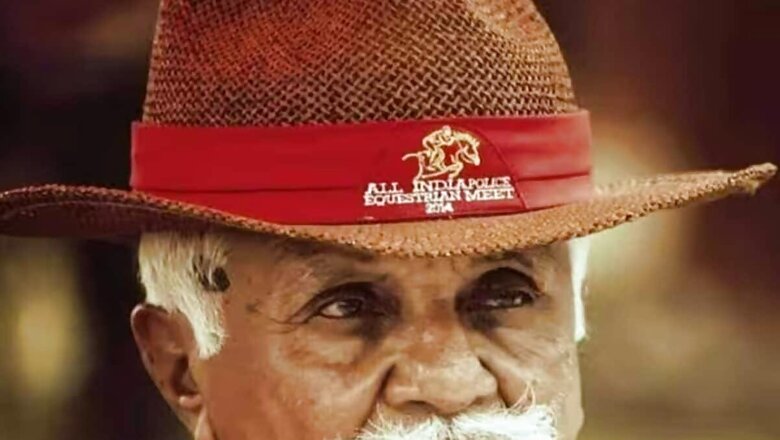
views
RD Jhala was an officer who was held up as an example even three decades after his retirement from the police department. When it comes to the desirable virtues of a police officer, like dedication, a sense of duty, and utmost honesty, he stood tall throughout his service. He epitomised an ideal police officer. Forget Gujarat, there are only a few officers left in the entire country whose names can be cited without hesitation for possessing such virtues. Therefore, this imahars more like the end of an era for Gujarat Police.
A role model for many
How important RD Jhala was to the Gujarat Police can be easily gauged from the fact that new state DGP Vikas Sahay sought his blessings, travelling from Gandhinagar to Rajkot, immediately after taking the post in March. Sahay had worked under Jhala in Godhra from where the latter retired on the last day of April in 1994.
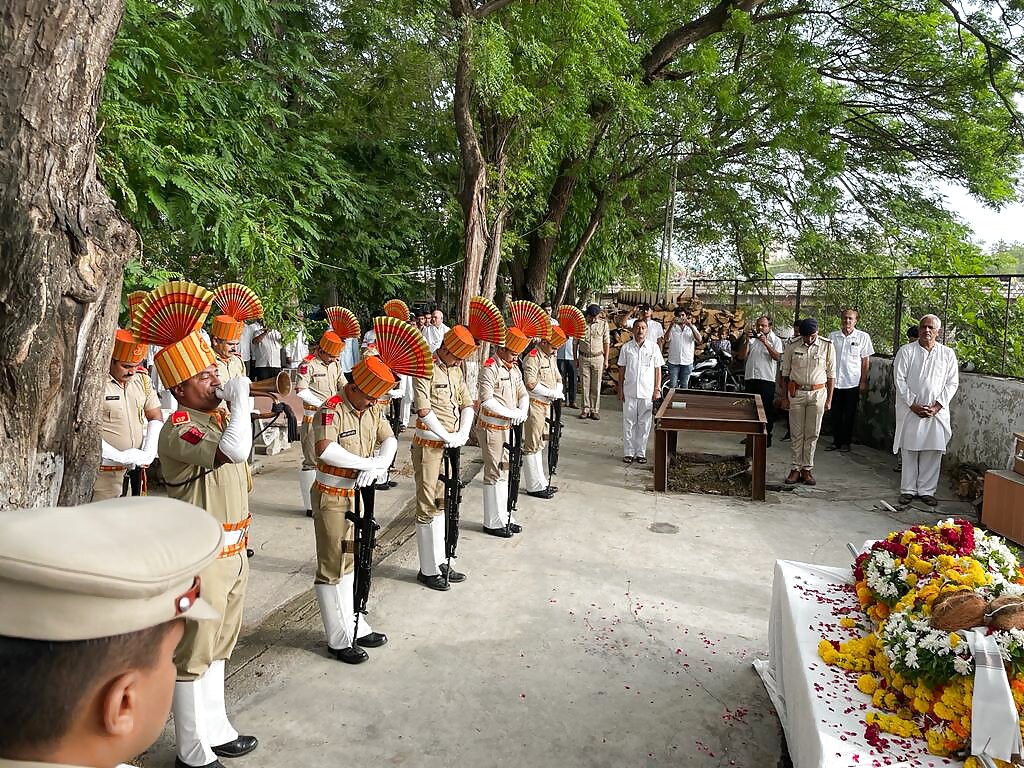
Inspiring career
Surprisingly, the ideal officer Jhala did not make it to the IPS directly, but started his career as a police sub-inspector. He was inducted into the Indian Police Service in his later years and retired soon after. But his professional journey and commitment to work were at such a level that inspired hundreds of IPS officers of the Gujarat cadre, who were selected into the IPS and reached the DGP’s chair.
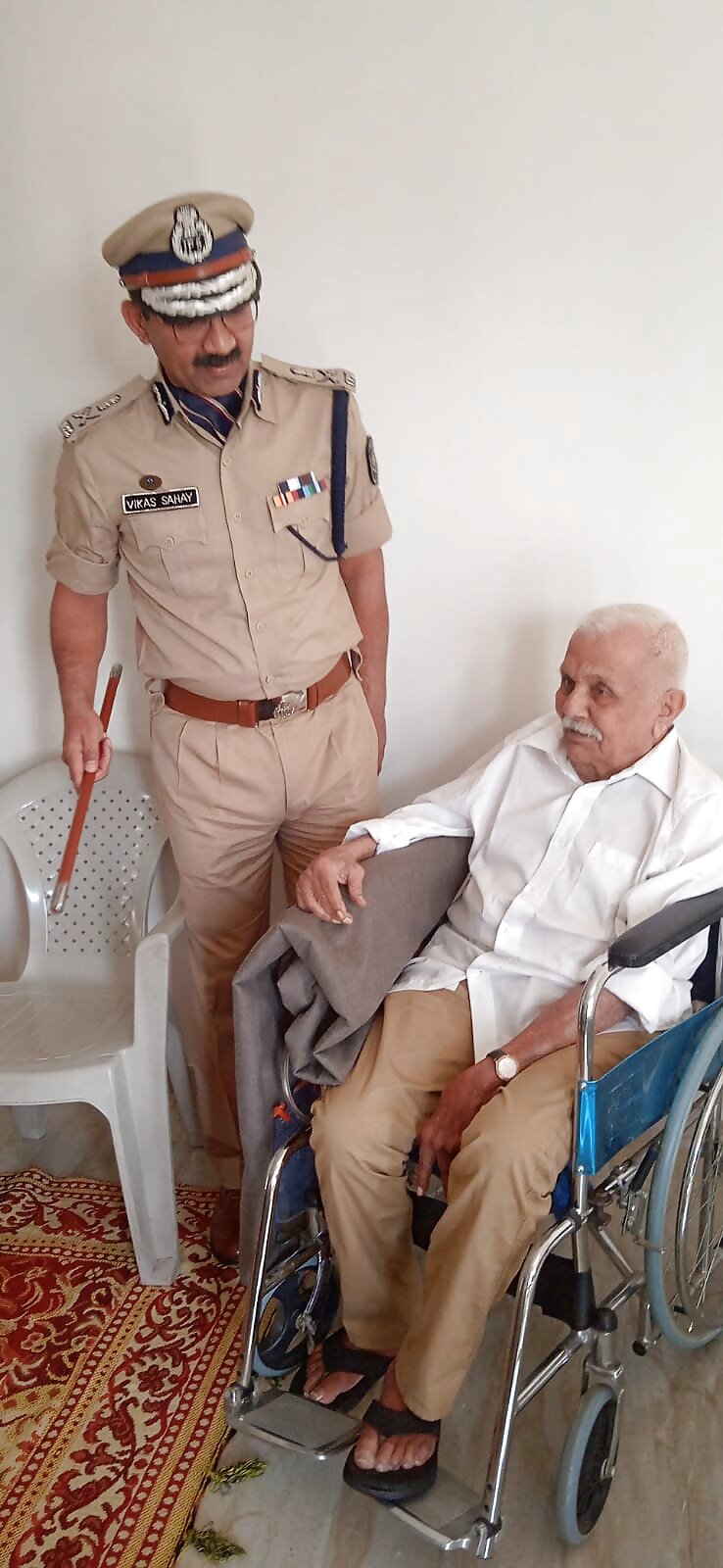
The many admirers
So what were the qualities of RD Jhala that helped him carve out a special place for himself? Jhala was born in Bhavnagar and started his police career in 1958, even before Gujarat came into existence as an independent state. What were the reasons that, be it police officers or the common man, all were impressed by him, that too when RD Jhala had already retired in 1994? Actually, his retirement didn’t reduce his appeal or the number of officers approaching him, that too in a state where a popular proverb among officials is “Utrelo amaldar kodi no”, meaning a person has no value after stepping down from the chair.
The early years, and a touch of royalty
His full name was Raghurajsinh Dilipsinh Jhala and he was a native of Minapur village in Surendranagar district of Gujarat, though he was born on June 1, 1936, in Bhavnagar. This was the era of British rule, but as a child Raghuraj was brought up in the princely state of Bhavnagar, which held a preeminent position among more than five hundred and fifty others in terms of education and administration, and its ruler was Maharaja Krishna Kumarsinhji Bhavsinhji Gohil. The Maharaja was the first to decide to merge his princely state with independent India and became the first Indian governor of the Madras province after Independence in 1948.
Close to nature
RD Jhala’s father Dilipsinh Jhala was the ADC of the Maharaja of Bhavnagar and also the forest officer of the princely state. So while a young RD Jhala developed a special liking for horses that were an important part of the royalty, he also had much love for the forest and wild animals. After his schooling in Bhavnagar, Jhala graduated from Samaldas College in the city.
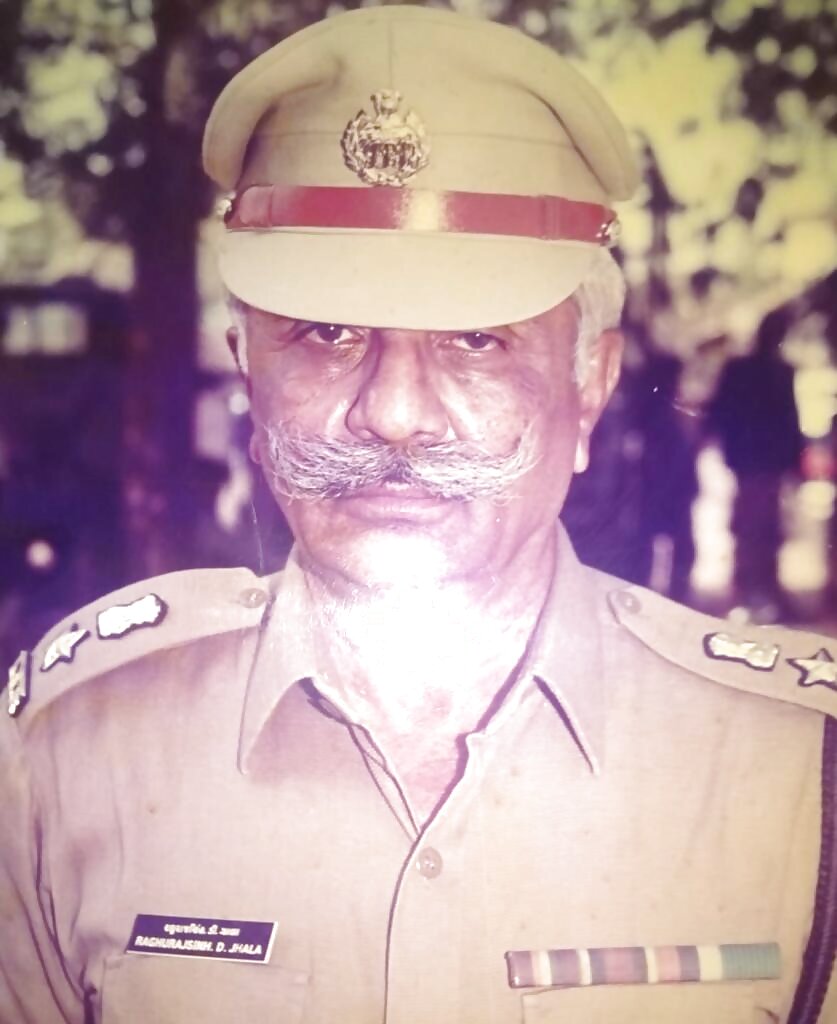
Joining the police force, army dreams shattered
When Jhala joined the Bombay Police in 1958, neither the state of Gujarat nor Maharashtra existed. He was trained as a PSI in Nashik, where the police training school used to be. On a linguistic basis, Bombay was divided on May 1, 1960, into Maharashtra and Gujarat. This is when Jhala became a part of the Gujarat Police.
After Nashik, spending some time in Vadodara as a trainee PSI, Jhala came to the region of Saurashtra, where he had spent his formative years and he got posted in Khambha area of Amreli in 1962. This was the year when a war between India and China broke out and Jhala was keen to join the army, but he did not get permission from Gujarat Police. He was left disheartened as his father and a cousin had been in the army. Among Jhala’s role models were Sam Bahadur, the first Indian Commander-in-Chief of the army Cariappa, and Lieutenant General Sagat Singh, known for his participation in the liberation of Goa in 1961.
In the domain of dacoits
Not permitted to join the army, RD Jhala turned all his focus towards police work, which later brought him much-deserved fame. That was a time when crime was at its peak, and dacoities were rampant, leaving the common man fearful and the police perplexed. Saurashtra was infested by Baharvatiyas who would loot people after announcing it first. The tales of the bandit Bhupat are still popular in India and Pakistan, whose presence was a threat not only to then Saurashtra chief minister UN Dhebar but also to the country’s first Prime Minister Jawaharlal Nehru on visiting the region. Bhupat remained elusive till the end, and when pressure mounted, he moved to Pakistan, spending his final days there.
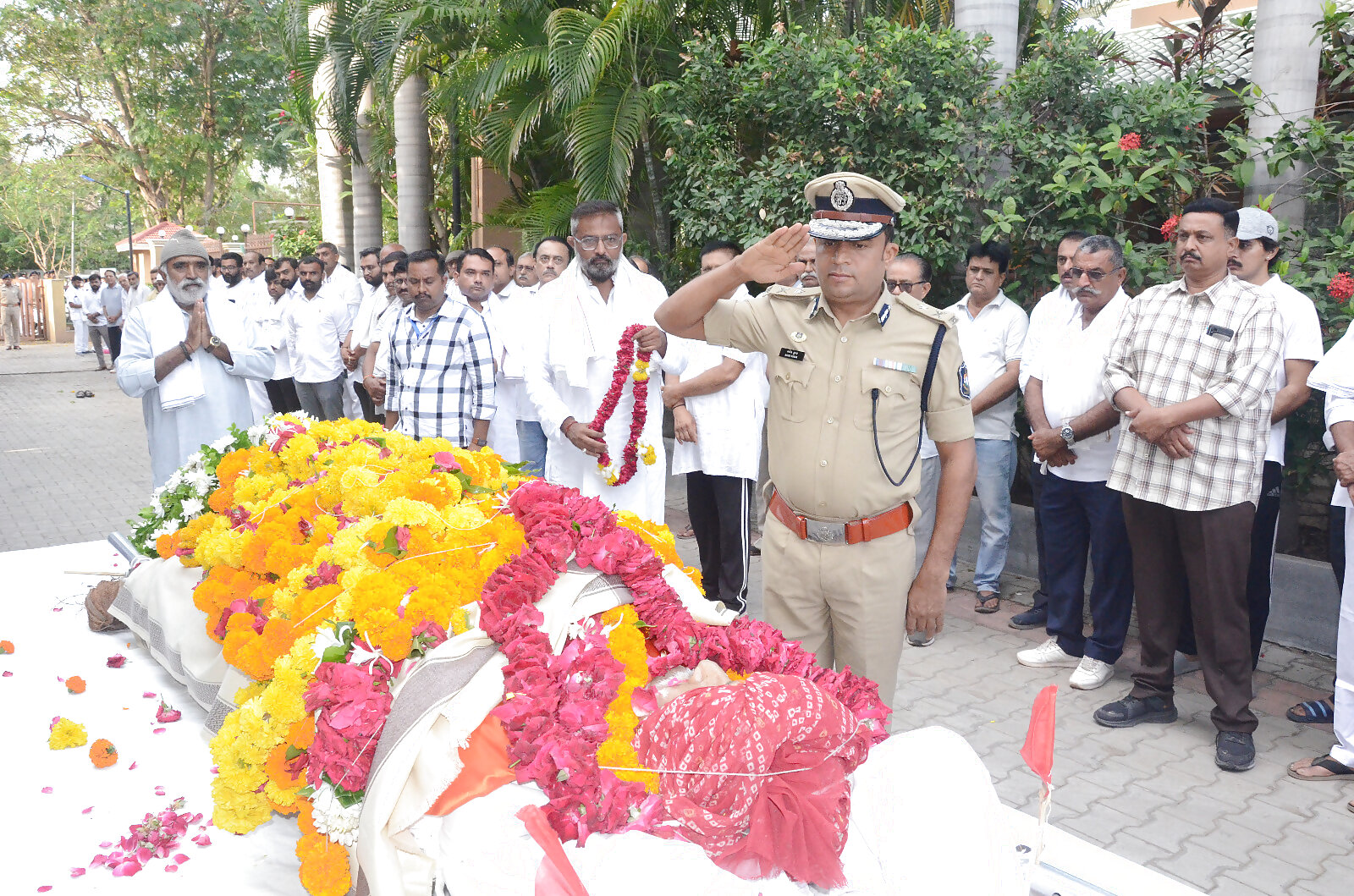
Crackdown on crime
A decade after Bhupat left for Pakistan, Jhala started his clean-up mission in Saurashtra, catching several dreaded dacoits, and also killing quite a few. This was the beginning of his never-ending fame, which continued to grow till the last day of his career. Jhala did not look back after that phase of 1962-63. In 1969, he also took training from the Central Detection School in Kolkata to master investigative skills. He kept on progressing further and further, while steadily climbing the career ladder on the way.
Rise and rise
It was often seen that officers who join as sub-inspectors only manage to become deputy SPs by retirement. But Jhala was born to be an exception. In his career journey, Jhala was promoted to inspector in 1970, deputy SP in 1984, and by 1990 he was in the Indian Police Service. Such was his commitment towards duty that when he was posted in Bhavnagar as deputy SP in 1984, he went to Punjab to investigate an important case, not even attending the engagement of his daughter. This clearly shows that Jhala always gave priority to duty over personal matters.
He was a mix of virtues rarely found together: dedication towards work and a hundred per cent honesty. Jhala was one of a kind and was a role model for new officers joining the police service. After all, he epitomised all the qualities desirable in a police officer.
Horse sense
His dedication was not confined to just police duty but another arena as well. That was his love for Kathiawadi horses. Jhala himself had prepared the manual in 1975, which Gujarat’s mounted police squad follows to this day. Jhala also tried to increase the representation of Kathiawadi horses in the Gujarat Police. One can gauge the importance of Jhala’s contribution to building Gujarat’s mounted police squad that even after his retirement, the local police in Rajkot and Bhavnagar have named their riding clubs after RD Jhala: the two cities in which he spent most of his career.
The Godhra challenge
In the last years of his career, Jhala was the superintendent of police of Godhra, one of the most sensitive districts of Gujarat, and here he served from July 25, 1991, to April 30, 1994. RD Jhala was first posted here in January 1991 as additional SP and was appointed the superintendent after the transfer of his predecessor Mohan Jha. During his time in Godhra, Jhala improved the law and order situation by applying his brain and skills. LK Advani’s Ram Mandir Rath Yatra which started from Somnath in September 1990 had stirred up tensions in Godhra, and the situation was controlled only after imposing a curfew there for a long time.
Aftermath of Babri demolition
When the disputed Babri Masjid was demolished at Ram Janmabhoomi in Ayodhya in December 1992, Jhala took complete command and did not allow the situation in Godhra to worsen. This puzzled all the officers who were well-acquainted with the sensitivity of Godhra. But Jhala had managed to win the trust of all communities with his sense of justice, understanding, and courage, because he had learned only one mantra during his training: the holy scripture of police officers is the Constitution and the law, which is equal for all. Jhala epitomised courage as he would stand alone on the street in front of a mob of hundreds, which would soon disperse because of his presence.
Lionhearted till the end
After retiring from the police service, Jhala chose to live amid nature in the Dhari area of Amreli district in Gujarat. Such was his bond with nature that lions would visit his farmhouse at night where Jhala did not even have an electricity connection, but he lived completely fearlessly. He was neither afraid of anyone during his time in the police service nor after retirement. That’s because he lived all his life with honesty and had the same grace and pride till the last day. He had a unique persona and spent his life like a lion till the end, with a sharp moustache and an upright gait: this was the identity of RD Jhala. He was matchless in his elegance, manners, and sense of hospitality, always taking care of the poor.
Hunting the hunters
Living far from the glitter of cities after retirement, Jhala lived in Gadhia, a forested area of Amreli, contributing immensely towards the conservation of lions. He had even busted a gang of poachers in the 1970s when they had started preying on the lions. Even long after his retirement, when the menace of poaching started again in Gir around 2007, he assisted the SIT formed on the orders of the then Gujarat chief minister Narendra Modi in apprehending these hunters. It was unacceptable to Jhala that Gir, famous all over the world as the last refuge of Asiatic lions, should become a haven for hunters.
Undaunted by illness
He would regularly advise officials of the forest department about the necessary measures for the protection of lions and how to avoid the danger of poachers. VJ Rana, currently the Chief Conservator of Forests in Kutch and who once worked in Junagadh and the Gir Sanctuary, still remembers how RD Jhala used to sit with him and give him tips. Jhala’s deteriorating health couldn’t deter him from fulfilling his commitment. He continued to do this work till the last days of his life, even when he was gripped by a disease like Parkinson’s and started having trouble walking. Last year when his wife Jasuba died, and he became weak due to the disease, he moved to Rajkot where he lived for the last six-eight months. But he remained a big draw among the people as the number of visitors keen to meet him did not go down. Among them were a wide range of people, including senior and junior police officers, horse enthusiasts, and his admirers.
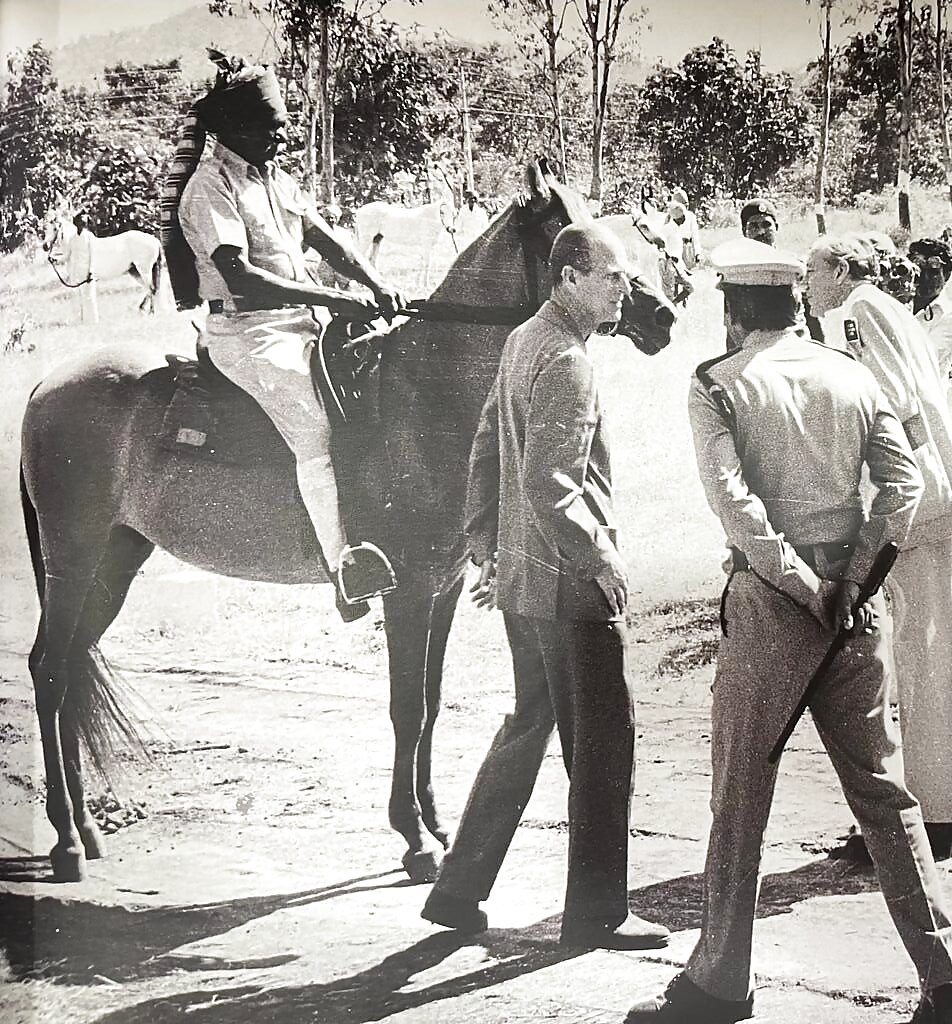
A lesson for the Prince
He had countless stories associated with his long career. Anyone sitting near him would hear dozens of gripping anecdotes from his professional life or some fascinating insight about horses. Being an expert of Kathiawadi and Marwadi horses, he was sought after all over the country. In November 1983, when late Prince Philip, husband of Britain’s late Queen Elizabeth II, had come to Gir Sanctuary in Gujarat, but was disappointed at not being able to get a glimpse of a lion there, Jhala performed a horse show that convinced him of his knowledge and won him over. Prince Philip himself was quite knowledgeable about wildlife, having been the president of the World Wildlife Fund UK. But that did not stop Jhala from correcting him when he made an erroneous remark about a horse named Chand.
Meeting with Modi
His mastery over horses and different equestrian sports was at such a level that he worked extensively in grooming young talents and would also referee at equestrian competitions held within Gujarat and in other parts of India. At one such competition held in Gandhinagar in 2010, he met Narendra Modi who praised Jhala for being a model police officer and for his contributions towards promoting horse riding.
Tale of pulling Nehru’s security
Jhala, who earned a lot of fame during his journey from PSI to SP, started his career in the era of IP officers, who were like ICS officers, snobbish unlike today’s IPS officers, enjoying a great sum of power with influence. Till his last years, Jhala would share with pleasure the story of N Rama Iyer IP, the police commissioner of Ahmedabad in 1961-63, who withdrew security from a public meeting of the then Prime Minister Nehru in the city, after the PM reprimanded a junior officer for stopping unidentified people from climbing onto the stage.
An indignant Rama Iyer IP, ignoring all possible consequences including departmental action, removed the police personnel and officers from Nehru’s meeting. His argument was that if the PM does not care about following the necessary instructions of the police officers, then what is the need to provide security to him? It is difficult to believe something like that today. But Jhala saw all this at the beginning of his career, and decided to take steps to uphold law and order without fear or favour. Jhala has left this world with his reservoir of such unique stories. Now only his memories are left, which will continue to inspire not only the Gujarat Police, but all the officers across the country aspiring to present themselves as ideals in front of society.












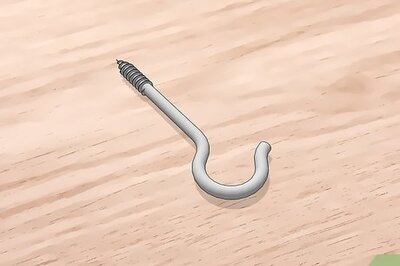







Comments
0 comment